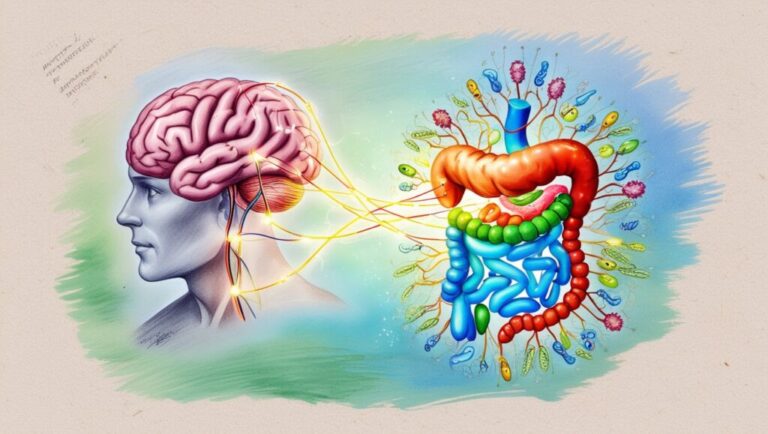Are gut microbes capable of regulating our stress levels?
Are gut microbes capable of regulating our stress levels?
Okay, buckle up, because we’re about to go on a ride that starts in your intestines and somehow ends up in your brain. I know. Sounds gross and confusing. But trust me — this is one of those “wait… what??” topics that’ll make you side-eye your next yogurt.
So the big question is: can the microbes in your gut actually help regulate your stress levels? Like, is your belly bacteria out here low-key acting like a tiny therapist?
The short, mind-blowing answer: yes, they kinda are.
Let me explain it like we’re just chatting over snacks (hopefully not while eating anything too questionable), and I’ll break this whole thing down into simple, relatable, totally non-sciency-feeling terms.
First Things First: What Even Are Gut Microbes?
Inside your gut — mostly your large intestine — there are trillions of microorganisms. We’re talking bacteria, fungi, viruses, and other tiny creatures. It’s like a microscopic, chaotic city down there. And together, all those little guys are called your gut microbiome.
Now I know that sounds creepy — like, ew, things are living inside me? — but honestly, you’d be in deep trouble without them. They help digest food, produce vitamins, keep your immune system strong, and now, as scientists are learning, they may also help manage your emotions.
Yup. Your gut bacteria aren’t just about poop. They’re about peace of mind, too.




The Gut-Brain Connection Is Real (And Kinda Magical)
There’s this thing called the gut-brain axis. Think of it like a secret tunnel between your belly and your brain. They’re constantly sending messages back and forth — and those messages aren’t just about hunger.
Your gut talks to your brain using chemicals like neurotransmitters (yep, the same ones involved in mood — like serotonin, dopamine, and GABA). And your gut bacteria? They help produce and regulate those chemicals.
Here’s something that blew my mind: about 90% of the body’s serotonin — the feel-good chemical — is made in the gut. Not in your brain. In your gut.
So yeah, if your gut is out of balance, it’s not just your digestion that suffers — your mood can take a hit, too. You’re not just hangry. You’re microbially misaligned.
So How Does This All Tie Into Stress?
Okay, picture this:
You’ve had a rough week. You’re tired, anxious, and your body’s on edge. Maybe your stomach’s acting weird too — like butterflies, knots, or that “why does my stomach hate me today?” feeling.
Well, your gut microbiome might be reacting to your stress — and also making it worse. Stress can actually throw off the balance of your gut bacteria. And when your gut bacteria are off? That can send distress signals right back to your brain.
It’s like two grumpy roommates feeding off each other’s energy. One gets annoyed, and the other’s like, “Oh, we’re doing this? Cool, I’ll be upset too.”
But here’s the hopeful part: when your gut microbes are healthy, they can help calm that system down. Some of them literally make calming chemicals, like GABA, which helps reduce anxiety and makes your brain feel more at ease.
So yeah. Some bacteria in your belly are out here acting like microscopic stress therapists. Who knew?
The Science-y Stuff (But I Promise It’s Not Boring)
Researchers have done studies where they take bacteria from calm animals and transplant them into anxious ones — and guess what? The anxious ones chilled out.
They’ve also done the reverse — giving “stressed-out” gut bacteria to calm animals — and those calm animals became more anxious. It’s wild. It’s like a mood swap, just from bacteria.
And in humans? We’ve seen that people with anxiety and depression often have different gut bacteria than people who don’t. There’s even early research showing that taking specific probiotics (the “good” bacteria) might help improve mood and reduce stress.
It’s still being studied, and it’s not magic, but the pattern is clear: your gut microbes affect your mental state.
So What Can You Actually Do About It?
Look, I’m not gonna tell you to go chug kombucha and call it therapy. But if you want to support your gut — and maybe help your stress levels at the same time — here are some simple, non-gimmicky things you can do:
- Eat more fiber. Fruits, veggies, whole grains — your good gut bacteria love this stuff.
- Fermented foods. Yogurt, kimchi, sauerkraut, kefir — these are like bacterial smoothies for your gut (I know that sounds disgusting, but you get the idea).
- Cut back on sugar and processed foods. These can feed the bad bacteria, and throw your whole system off.
- Sleep. Seriously, even your gut microbes have a rhythm. When you don’t sleep well, they get cranky too.
- Exercise. Moving your body helps reduce stress and makes your gut happy. Win-win.
- Maybe try a probiotic. But talk to your doctor first — not all probiotics are the same, and some are totally useless.
Final Thoughts
So, can your gut microbes regulate your stress levels?
Absolutely. They’re not the only factor, but they’re a big one — and they’re way more involved in your emotions than most people realize.
It’s kind of wild to think that your body is full of tiny little creatures working together to help you feel balanced, both physically and mentally. You’re basically hosting a bacterial symphony, and when the music’s off, you feel off.
But when you treat them right? They’ve got your back — or your gut, in this case.
So maybe next time you’re feeling anxious, take a breath… and have a banana. Your microbes will thank you.
Related Articles from EdgyThoughts.com:
Why Emotional Intelligence Is Finally Being Taught in Schools
https://edgythoughts.com/are-schools-teaching-emotional-intelligence-now
Is VR the Future of Classroom Learning?
https://edgythoughts.com/is-vr-the-future-of-classroom-learning
External Resource:
Explore more on how gut bacteria impact mental health:
Gut–brain axis – Wikipedia
How does working memory differ from short-term memory?
https://edgythoughts.com/how-does-working-memory-differ-from-short-term-memory/
What if mermaids really lived in deep seas?
https://edgythoughts.com/what-if-mermaids-really-lived-in-deep-seas/





